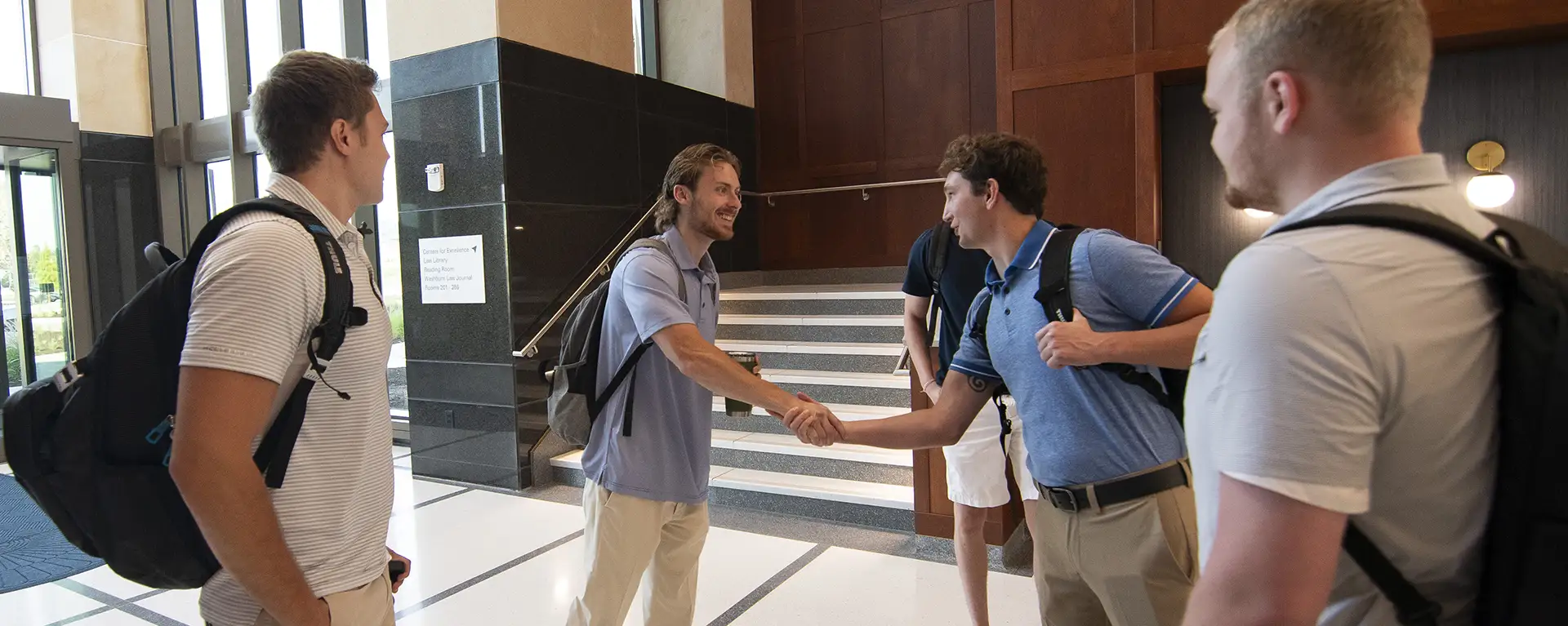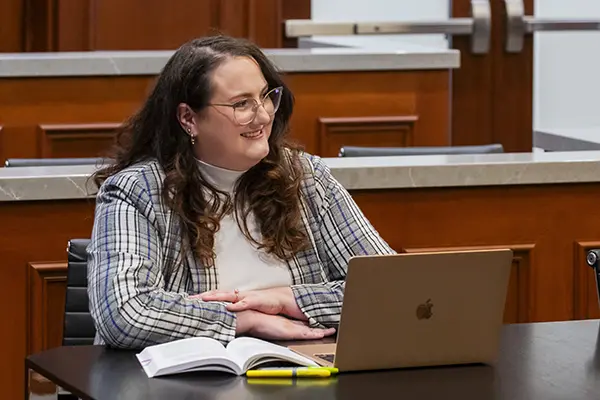

Background readings on professionalism (required)

Breaks are NOT noted on the schedule, but will be provided throughout the day as needed.
LL.M. students should plan to arrive in Topeka no later than Monday, August 11, 2025. It will take some time for you to set up your household, source and buy food and get other necessities you could not bring with you. You will want to set up your accommodations, find out where the nearest grocery store is, and figure out transportation to and from campus. Please have these things settled before you start orientation so you are not scrambling for time.
9:00-11:00 a.m. – Washburn University Office of International Programs – Plass Building
All events today, unless noted, are in room 150 of Robert J. Dole Hall School of Law Building, 2073 SW Washburn Terrace E, Topeka Kansas 66621.
Bring a government-issued photo ID (passport) today.
9:00 a.m. – Welcome Breakfast and Introductions
10:00 a.m. – Technology Connection
10:30 a.m. – Directory and Class Photo
11:00 a.m. – Bar Admission Introductory Information
11:30 a.m.-12:30 p.m. – Course Selection
12:30-1:30 p.m. – Lunch (provided)
1:30-2:00 p.m. – Landlord/Tenant Rights in Kansas (Tentative)
2:00-3:00 p.m. – Washburn Law Honor Code
3:00-4:30 p.m. – Campus Tours
Breaks are NOT noted on the schedule, but will be provided throughout the day as needed.
9:00 a.m. – Breakfast, Check-in, and Photos – Kent & Karen Smith Student Commons (main entrance)
10:30-11:00 a.m. – Law School Resources
11:00 a.m. - 12:00 p.m. – Washburn University Campus Resources
12:00-1:00 p.m. – Lunch (provided)
1:00-1:30 p.m. – Email, Wi-Fi, Printing – Get Connected
1:30-2:30 p.m. – Introduction to Professionalism Mentors and Building Tour
2:30-3:30 p.m. – I Belong at Washburn Law
3:30-4:30 p.m. – Planning for a Meaningful Legal Career
4:30-5:15 p.m. – Academic Support and Bar Passage Resources
HOMEWORK: Read and brief these cases
Reminder: please wear your t-shirt for the class photo on Friday (next day).
8:30 a.m. – Coffee
8:45 a.m. – Class Photo – Smith Student Commons
9:00-10:00 a.m. – Kansas Lawyers Assistance Program (KALAP) and Wellness (ABA Standard 303)
11:00 a.m. – 12:00 p.m. – Professionalism and the Honor Code (Academic Section)
12:30-1:30 p.m. – Lunch (provided) – Meet with Your Professionalism Mentor Group
1:30-2:30 p.m. – Character and Fitness Qualifications for the Bar Exam – Character and Fitness information, disclosures and investigations required for licensure
1:30-2:00 p.m. – Amending your Law School Application
2:00-3:00 p.m. – Cross-Cultural Competency for Lawyers: ABA Standard 303
3:00 p.m. – Student Oath of Professionalism
3:15-4:30 p.m. – Tour – Brown v. Board National Historic Park
HOMEWORK: Read and brief these cases
Breaks are NOT noted on the schedule, but will be provided throughout the day as needed.
Academic Skills Program aattendance (for ALL 4 parts):
8:30-9:00 a.m. – Breakfast – Kent & Karen Smith Student Commons (main entrance)
9:00 a.m. – 12:00 p.m. – Academic Skills Program (1 of 4)
12:00-1:00 p.m. – Lunch (provided) and Student Panel
2L Students will share their experience as first-year law students.
1:00-2:00 p.m. – Library Tour and Research Techniques
2:00-5:00 p.m. – Academic Skills Program (2 of 4)
8:30 a.m. – Coffee – Smith Commons
9:00 a.m. – 12:00 p.m. – Academic Skills Program (3 of 4)
12:00-1:00 p.m. – Lunch (provided) Professionalism Mentor Group Meeting
1:00–2:00 p.m. – Academic Integrity, Professional Responsibility and the Use of AI in Law School
2:00-5:00 p.m. – Academic Skills Program (4 of 4)
Regular law school classes begin.
Non-Student Organizations Opportunity Fair
Non-Washburn Organizations